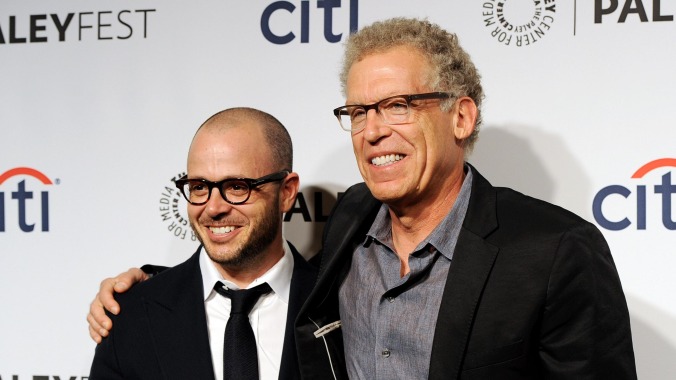New book details the toxic and racist culture behind the scenes of Lost
Lost writers and actors share claims of retaliation, racist jokes, and everyone being sidelined in favor of white people

With the WGA strike still going on, it’s unfortunately easy to find a lot of stories about the casual condescension and mistreatment that TV writers regularly experience in their jobs, be it from executives who don’t know anything about the creative process or what, but those problems are very much not new—and iconic entries in the television canon are certainly not immune. As detailed in an excerpt from longtime entertainment industry journalist Maureen Ryan’s new book Burn It Down: Power, Complicity, And A Call For Change In Hollywood on Vanity Fair, the success of beloved ABC drama Lost belied a behind-the-scenes culture of bullying and racism tolerated—if not outright encouraged—by showrunners Damon Lindelof and Carlton Cuse.
The whole except is worth reading for anyone interested in Lost, or TV, or how TV is made, or just… the kinds of things that human beings can go through, but it tells various stories about writers and actor on the show having to endure offensive jokes and comments with the knowledge that they would be ostracized if they didn’t put up with it or join in. Writer Monica Owusu-Breen compared it to middle school, saying it was “relentlessly cruel” and that she has “never heard that much racist commentary in one room” in her career. Here are some highlights from the Vanity Fair excerpt, either heard about Owusu-Breen or other writers who chose to stay anonymous to protect their careers:
When someone on staff was adopting an Asian child, one person said to another writer that “no grandparent wants a slanty-eyed grandchild.”
When actor Adewale Akinnuoye-Agbaje’s picture was on the writers room table, someone was told to remove their nearby wallet “before he steals it.”

 Keep scrolling for more great stories.
Keep scrolling for more great stories.